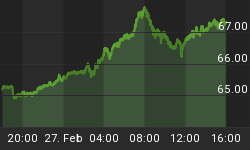With Russia saying it’s already got a vaccine and Trump promising one by Election Day this year despite contradictory information from U.S. health officials, it’s probably a good time to attempt to wade through the COVID-19 media clutter for a realistic picture of the vaccine-aided end to this pandemic.
Earlier this week, Russian President Vladimir Putin said his country had effectively won the vaccine race, which is the new “Space Race”, unveiling the “Sputnik V” COVID-19 vaccine. Putin said the vaccine had “passed all necessary tests” in what appears to have been a vaguely worded statement designed for public consumption only.
The vaccine has already been approved by the Russian Health Ministry, which made that move after only two months of trials. Now, Russia is planning to start giving the vaccine to medical workers and teachers by the end of this month. By October, it’s hoping to be offering them to the general public.
But is it effective and is it safe? And what exactly are these “necessary tests”?
"A vaccine against coronavirus has been registered for the first time in the world this morning," Putin said on state TV. "I know that it works quite effectively, it forms a stable immunity."
And the Russian president even claims to have tested it on his daughter, noting that she experienced a slightly higher temperature after each dose but “now she feels well”.
There is a stark regulatory difference between Russia and Western governments when it comes to drug-testing.
According to ABCNews, the Russian vaccine was tested on fewer than 100 people, while in a Western nation this would involve tens of thousands of human test subjects in a Phase III trial.
In other words, Russia appears to have simply skipped ahead in the process to win the COVID vaccine race. And there is no one to verify its efficacy because the Russians are offering up no scientific data on the vaccine.
Back in the United States, the COVID-19 vaccine is a veritable political football.
On August 3rd, Trump said the U.S. could have a COVID vaccine available to the public “far in advance” of the administration’s goal of the end of the year or early 2021.
That was immediately qualified and toned down by health officials, who say that a vaccine is not likely to be widely available until the Spring or Summer of 2021.
On August 11th, Dr. Anthony Fauci of the White House Coronavirus Task Force told Bloomberg: “I would hope that by the time we get well into the second half of 2021 that the companies will have delivered the hundreds of millions of doses they have promised.”
And this is exactly the point at which the West and Russia diverge on the issue.
By Election Day, it is highly unlikely that the country’s health regulators will have the necessary amount of data demonstrating efficacy and safety that would allow them to get it approved for widespread use.
For one thing, the current vaccine in the works requires two doses, which also means that supplies will be limited, while the government doesn’t even have a plan in place for how to start distributing a vaccine among the general populace.
For now, the vaccines are still in the trial phase and no one knows yet when any will be ready as we await clinical trial results.
Inovio, for one example, just saw its shares take a beating on August 11th as vaccine trial results were said to have led to more questions than answers. The Pennsylvania biotech company’s shares are so far trading down 23% today.
And Moderna, one of the darlings said to be ahead in this race (if you don’t count Russia), is now hoping to unleash a vaccine that turns the body into its own mini vaccine factory. Together with Germany’s BioNTech SE, they are proposing a vaccine that contains genetic instructions via RNA messengers that tell the body to produce virus proteins to fight coronavirus, Bloomberg reports. It’s also known as a “DNA vaccine”.
While that may be exciting, and while Moderna is the first company to have begun Phase III clinical trials in the United States, it won’t happen by Election Day. Phase III trials only launched on July 27th and Moderna doesn’t look set to even complete the enrollment of the planned 30,000 human test subjects until some time in September.
So right now, that makes Russians the guinea pigs in a battle for global prestige, while Americans will be waiting things out on the sidelines until well after November. Trump would surely like to pull a Putin, but that’s not how things work in the West.
By Fred Dunkley for Safehaven.com
More Top Reads From Safehaven.com:
















